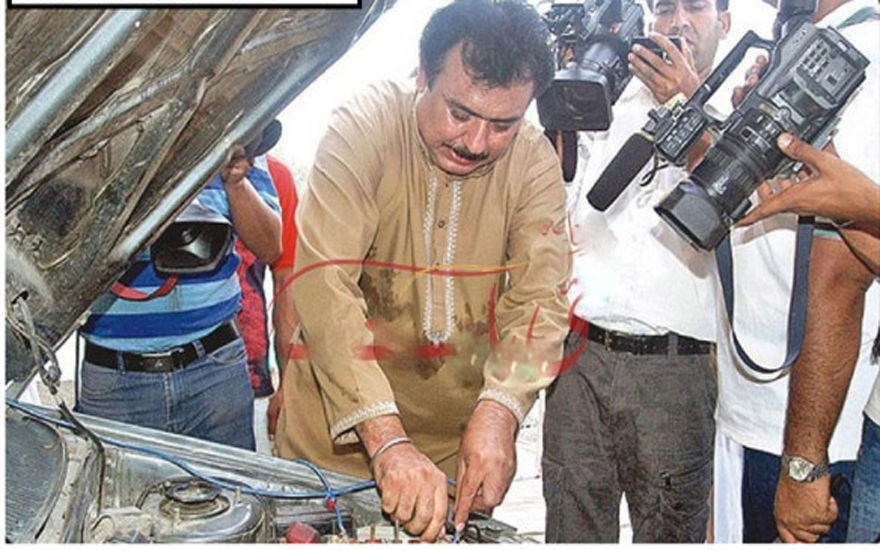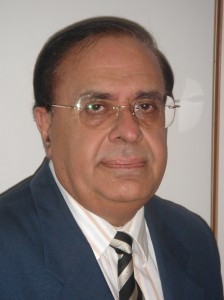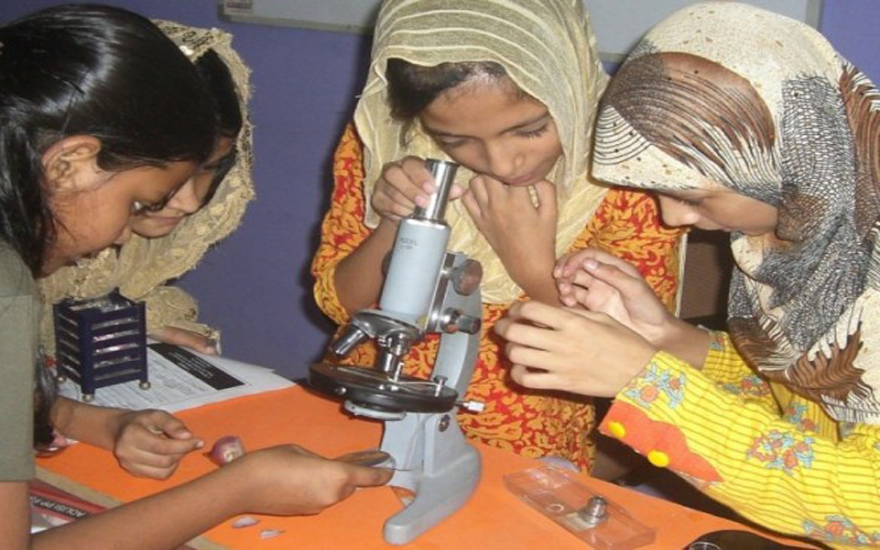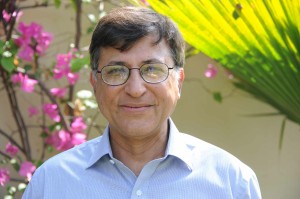The State of Science in Pakistan
By Syed Imam Haider | Society | Technology | Published 11 years ago
One way to assess a nation’s state of science would be to gauge the state of its scientists and ascertain whether its institutions are promoting a rational mindset in society by allowing the benefits of science to trickle down to the masses.
If we define science as the critical enterprise of building and organising empirically verifiable knowledge that is reliably applied for problem-solving in the natural world, Pakistan is clearly lagging behind, and the fault lies in its leadership and educational system.
This fact was symptomised by the lack of critical thinking some of our leading scientists, the media and government authorities reflected when they entertained engineer Agha Waqar’s fraudulent claim that a car could be powered using distilled water as fuel. A former director-general of the Kahuta Research Laboratories said he had done his research and that there was no fraud in the water-car claim. He even suggested Agha Waqar have this idea patented. The chairman of the Pakistan Council of Scientific and Industrial Research (PCSIR) upped the ante by stating that the idea was workable and that his organisation had already worked along these lines, while a former project director of the Integrated Missile Programme also said that this idea is absolutely workable. (It took him a few weeks to start talking about the possibility that Agha Waqar might have hidden calcium carbide in his water kit that, when mixed with water, produces acetylene which is used as fuel). On the other hand, a former chief science officer of the Pakistan Atomic Energy Commission and rector of Ghulam Ishaq Khan Institute clearly stated his lack of confidence in the idea. But, the fact that some leading Pakistani scientists were endorsing Agha Waqar’s perpetual-motion machine, and that engineering universities were extending invitations to him, casts a shadow on the state of science in Pakistan.

Trashing the claim of water as a primary fuel does not even require an undergraduate understanding of thermodynamics; common sense should suffice. Were the honourable scientists actually unaware of the erosion of their scientific bases, or were they willing to risk their reputation to cater to the pseudo-nationalist tastes prevalent in society?
Shockingly, the Pakistani media, in their usually misplaced patriotic zeal, equated Agha Waqar with Dr Hoodbhoy and Professor Atta ur Rahman, who vehemently opposed his unscientific ideas, citing the well-established laws of nature. The TV anchors, who conducted an intense debate on the potential of Waqar’s discovery to overturn the nation’s fortunes, lacked the scientific training needed to simplify the ongoing dialogue for the audience.
Agha Waqar was being presented as an underdog prodigy who was fighting the jacketed scientific elite in order to deliver to the underprivileged masses. Hamid Mir even praised Agha Waqar by quoting the omniscient Iqbal: “Tundee-a-baad-e-mukhalif say na ghabra ae uqaab, Ye to chalti hai tujhe ooncha uranay kay leay” (Fear not the severity of the opposing winds; the faster they blow the higher you will fly). So, thanks to the Pakistani media, Agha Waqar came across as more qualified than the two distinguished professors — a sad day for science in Pakistan. Pakistan’s only Nobel laureate in physics, Professor Abdus Salam, must have turned in his desecrated grave.

Professor Atta-ur-Rahman
Unfortunately, with Pakistan being a security state, its science and technology has been subservient to its politics and national defence. Consequently, most research institutions in Pakistan are geared toward nuclear/high-energy physics and space/military technologies. In fact, the contributions of nearly all those Pakistani scientists who have been honoured with the most prestigious civilian awards (Nishan-e-Imtiaz, Hilal-e-Imtiaz and Sitara-e-Imtiaz) have been in these areas. Barring a few exceptions, most Pakistani science and technology has been a by-product of sustaining its defence infrastructure. Though Pakistani researchers in nuclear physics and missile technology were the logical beneficiaries of this martial approach toward science, the key sectors for national socio-economic development (energy, healthcare, environment and civic infrastructure) have largely been ignored. As a result, we always hear about how Pakistan is faring better than India in the development of nuclear weapons and missile technology. But, what we don’t hear is how India produces twice as much electricity per capita compared to Pakistan, with far-reaching consequences for the economy and the common man’s relief.
Even though successive Pakistani governments have declared science a national priority since the 1960s, and our scientists have won prestigious international honours, a lack of scientific priorities driven by socio-economic development is inhibiting Pakistan from translating its scientific resources into growth and prosperity. It is time for civil society in Pakistan to demand that technical information about their scientific concerns be made publicly available. They need to keep an eye on the mega projects such as the Thar Coal Power Project (TCPP) and the K2 and K3 nuclear power plant projects to ensure that they are indeed in the people’s best interests and not boondoggles designed to generate windfalls for influential quarters.
It is not reassuring to learn that the scientific leadership responsible for the technical feasibility of the TCPP had failed to get the thermodynamics of Agha Waqar’s water-car right. Likewise, the Environmental Impact Assessment (EIA) for the K2 and K3 nuclear plants was approved without the mandatory public hearing. Furthermore, officials managing the K2 and K3 nuclear power plants confused the Chinese ACP-1000 reactor design, planned for the Karachi site, with the AP-1000 reactor designed by the US-based Westinghouse company, on national television. So, a civilian technical oversight is critical to ensuring scientific rigour and transparency in such projects.
The Pakistani media has also hurt science by conditioning its audience to irrational ways of looking at events and by creating undeserving heroes. Their unscientific ways of conducting debates have adversely affected science by creating intellectual chaos in Pakistan as against rational problem-solving. These debates are mostly dictated by unquestionable religiosity and patriotic zeal, and not by any rational thought process.
This pernicious trend in Pakistan is rooted in the retrogressive educational system General Zia-ul-Haq instituted when he appointed people with fundamentalist leanings to administer universities and research institutions as a part of his radicalisation agenda. Mazhar Mahmood Qurashi and Sultan Bashiruddin Mahmood were two such pioneers, who undertook the glorification of pseudoscience in an attempt to reconcile religion and science in the curriculum and research. They played a major role in radicalising science in Pakistan by publishing abstract theories about various religious phenomena and events. Sultan Bashiruddin Mahmood published work on the ‘mechanics of doomsday,’ as well as on ‘harnessing the jinn power’ to solve the energy crisis. A winner of theSitara-e-Imtiaz and a gold medal from the Pakistan Academy of Sciences, Sultan Bashiruddin Mahmood was eventually arrested for his suspected connections with the Taliban in the aftermath of the 9/11 attacks in the US.
Even a generation after Zia, the radicalisation of scientific education is still hurting. Dr Mujahid Kamran, the vice chancellor of Punjab University, the oldest and most prestigious institution in Pakistan, who is a professor of theoretical physics, is a leading conspiracy theorist. He claims that the US and British governments are controlled by a cabal of elite bankers that sponsor terrorist attacks in Pakistan and want to control human beings by putting microchips in their brains. Another prominent scientist in Pakistan subscribed to the thought that the High Frequency Active Auroral Research Program (HAARP), an Alaska-based US atmospheric research programme, could cause earthquakes by experimenting with the ionosphere using radio waves. Without identifying the physical mechanism used by its 3.6 MW transmitter, he speculated that HAARP had the ability to bring about continental-scale weather changes and might have caused the devastating floods in Pakistan. The problem with the theory is that it would simply violate the law of conservation of energy that even Albert Einstein’s theory of general relativity cannot violate.

Increasing resource allocations for science and technology would not be enough to energise and sustain a scientific culture. More fundamental changes are required to promote a scientific attitude and enlightened behaviour than building new ‘state-of-the-art’ universities and putting satellites into orbit. Embracing science will require giving up entrenched prejudices, promoting the freedom of thought and speech and showing a commitment to life-long learning, instead of just following a career-centric, money-making trajectory.
Science should not be reduced to imparting technical knowledge to students without any regard to developing their critical thinking skills and cultivating higher scientific ideals. Teachers need to ingrain in their students the idea that scientific methods are meant to be inherently adaptive and self-critical, and their sole objective is the pursuit of reality, regardless of biases.
In order to promote a culture of rational sciences in Pakistan, we need to educate ourselves about the generational debate over natural philosophy that took place in the 11th and 12th centuries between Ibn Sina (Avicenna), Al-Ghazali (Algazel), and Ibn Rushd (Averroes). We need to overturn the conclusion of that debate that was exacerbated by Ibn Taymiyyah and has been hurting the rational sciences in Muslim societies over the last 800 years. We also need to teach our children that the Golden Age of Islam in the 9th-12th centuries in Baghdad and Andalusia, that brought about major advances in mathematics, science, medicine and architecture, was also its most secular. They need to learn that, like today, even back then there were fundamentalist forces that constantly threatened the leading Muslim scientists and philosophers. They burned Ibn Rushd’s books and exiled him. But, Ibn Rushd’s influence, along with that of Ibn Sina on Rene Descartes and Isaac Newton, has significantly contributed to the scientific progress made by western civilisation. On the other hand, Muslim societies have descended into an intellectual abyss by following Al-Ghazali’s incoherent narrative.
In Pakistan, more than 20,000 religious seminaries are churning out millions of graduates who have no knowledge of mathematics and science that could help them adopt a decent profession. Some graduates end up joining terrorist groups and become their cannon fodder, while many others go around society spreading their virulent message. So, an increased emphasis on scientific education is also a survival tip for Pakistan in fighting terrorism.

Dr Pervez Hoodbhoy
Pakistan also needs to reduce the bureaucratic influence on its scientific research by making it independent of the various government ministries and the Pakistan Academy of Sciences, whose role should be confined to policy-making and vision-development. Because of government control, academic research in Pakistan is unknown to the international scientific community. According to an analysis, published by Dr Pervez Hoodbhoy, of the scientific papers and their citations over a 10-year period, the scientific research activities in Pakistan are much lower than that in many other developing countries, with significantly lower populations.
Dr Hoodbhoy has also been one of the lone voices decrying the assembly line of doctoral candidates walking out with PhDs in Pakistan. Most of these candidates, he says, have no understanding of the fundamentals of science yet they are awarded doctoral degrees and go on to peddle pseudoscience disguised as academic research that would not pass even the most basic critical scrutiny.
Delegating research to universities will not only improve the quality of higher education in the country, it will also open up avenues for international funds to Pakistani research programmes. The US-Pakistan Science and Technology Cooperation Programme, for instance, presents a credible framework for improving the quality and capacity of scientific education and research in Pakistan and needs to be expanded. It offers the potential for uplifting the lives of ordinary Pakistani people through technology transfer and successful public-private partnerships.
This article was originally published in Newsline’s July 2014 issue.


